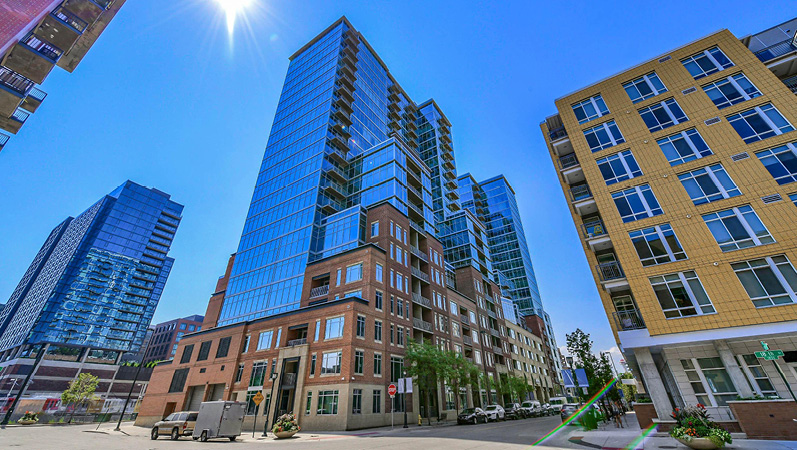Trying to navigate the Denver housing market is akin to a “Where’s Waldo” puzzle. Potential home buyers often meander through a miasma of obstacles, dead ends and illusions before finally finding the right home. For first-time home buyers, frequently the journey can’t even begin due to prohibitive price tags on single family homes.
The recent data from the Denver Metro Association of Realtors shows staggering figures of home prices in the 11 county metro area. Year-over-year, the price of a single family home has skyrocketed 17 percent. The average price of a single family home in the Denver area is now a whopping $616,895.
Furthermore, inventory is at a record low. The average time on the market for a single family home is a mere 20 days.
Compounding matters are the record low mortgage rates which are prompting more people to want to buy and existing home owners choosing to refinance and stay in their homes longer.
“Being priced out of the real estate market is creating a very real problem for younger and first-time homebuyers,” said Jenny Usaj, managing broker for Usaj Realty, “What is not being reported is that qualifying for the home price is only one part of the purchasing equation. Coming up with the funds for appraisal gaps, escalation clauses, and additional closing fees (outside of the downpayment) creates a formidable challenge for entry-level buyers. Cash-buyers have the upper hand and a competitive market forces buyers to limit contingencies and creatively differentiate their offer from the others, which negatively impacts the first-time homebuyer.”
So what’s the answer?
It might be time to consider buying a condo.
Denver Condos are More Affordable than Detached Single-Family Homes
Compared to detached single family homes, condo and attached homes are more affordable and are typically on the Denver market a bit longer than single family homes (31 days compared to 20). While the prices of condos have risen, it hasn’t been as dramatic as that of single family homes. From December 2019 to December 2020, buyers saw a 4.8 percent increase compared to 17 percent on single family homes.
Compared to single family homes, condo and attached homes are more affordable and are typically on the Denver market a bit longer than single family homes (31 days compared to 20).
Condo living is a great option, especially for both first time buyers and people looking to downsize. Many people are drawn to the security that condos offer as well as the maintenance free living. And best of all, the price tag is much less expensive than that of a single family home, and condos often offer attractive amenities.
Condos are Currently Less Competitive to Buy
“Buyers can win in the attached market, explained Usaj. “Inventory has skyrocketed in the condo market compared to single-family. This is a great space to find a deal while other first time homeowners are scrambling for single-family homes. Condo buyers typically have some time to think offers through and have an opportunity to negotiate the price and terms. Condo sellers usually offer more concessions and discounted prices per square foot. Home buyers who prefer to negotiate rather than compete will have a successful experience in the attached-market arena.”
There are a Variety of Styles to Choose From
There are many different styles of condos. From the industrial-style lofts in high-rises offering great views to ground floor abodes with their own garages, the variety of lifestyles is truly impressive in the Denver area. Some provide over-the-top amenities; others have minimal conveniences. However, they all share the common thread of maintenance free living: no plowing or snow shoveling, no yard upkeep, no worries.
Condo living is a great option, especially for both first time buyers and people looking to downsize. Many people are drawn to the security that condos offer as well as the maintenance free living. And best of all, the price tag is much less expensive than that of a single family home, and condos often offer attractive amenities.
Condos typically share at least one common wall. A unit may be above or below another home; sometimes, the home is within a larger pre-existing home. Many large older homes in the central neighborhoods of Denver have been “subdivided” and turned into multiple condo units. With shared or private entrances, these unique homes are excellent examples of what form a condo can take.
Social Component + Amenities
Providing access to social and recreational/outdoor activities is a big draw to buying a condo. Residents in large multifamily communities often organize book clubs, happy hours, card games and other activities. For people who have just moved to Denver, this lifestyle helps the new homeowner get to know their neighbors and acclimate to the new surroundings.
“Condo living gives people time to pursue hobbies instead of focusing on outside house chores, and enjoy amenities like pools, gyms, and maintenance staff,” said Usaj. ” It can also be a fun way to meet new people. Since the home owners chose this type of lifestyle, it often draws together a similar group of people. Condo life also promotes a healthy lifestyle for pet owners! Getting out a few times a day to walk your dog encourages a healthy routine and exercise, not to mention another fun way to meet your neighbors.”
In addition to the maintenance-free lifestyle, condo owners appreciate the amenities that often come with being a homeowner. The majority of condominiums are part of a homeowners association, and each homeowner pays a monthly fee that covers a wide range of services. This fee often includes access to an on-site gym, pool, community area, parking and a wide range of other perks.
What to Look For with the Building’s HOA
If you’re considering buying a condominium, pay particular attention to the homeowners’ association — you can’t ask too many questions. Homeowners associations are a group of property owners who help manage and maintain a group of homes or condos within a certain neighborhood or condo building. The association’s purpose is to keep property values up and provide governing documents on how members must maintain and upkeep their homes.
Depending on how well the HOA is managed, buyers feel confident that their building and neighborhood are being maintained and managed. Also, these associations guarantee certain standards are met relative to upkeep, appearance and quality of life. Depending on what’s included in the homeowner’s association fee, residents don’t have to worry about snow removal, a late night party or neighbors displaying multiple cars/RVs in the driveway.
HOA payments vary greatly. Usually HOA fees are quoted monthly, but can be billed quarterly or yearly. When considering buying a condo, it’s important to ask if there is an HOA and what the fee is in order to calculate your monthly costs (mortgage, utilities, insurance, etc.) in buying a home. Association payments include a variety of costs, and might include utilities like water, trash, sewer and electric/gas. In high rises, they also might include a technology package for cable and internet.
Additionally, some buildings also include maintenance fees for pools, landscaping and general exterior maintenance. In subdivisions, the HOA fee may include use of a clubhouse facility/pool, snow removal, security, fence upkeep and landscaping/maintenance. There can be strict guidelines on “quiet hours,” parking and vehicles in driveways.
There is no set amount on how much dues can increase over time. Some HOA’s have limitations in their governing documents that dictate how much dues can be increased per year. Usually costs can increase 1-2% a year to cover inflation and other economic factors. There can be assessments placed on the owners if a large item like a roof, for example, needs to be repaired, especially is there were insufficient funds in the reserve account. Well managed HOAs will anticipate repairs and maintenance, and adjust fees as necessary to avoid assessments. However, sometimes assessments are necessary to continue to make the neighborhood or building attractive to buyers by offering new facilities and amenities.
Request a copy of the HOA documentation including the budget, meeting minutes and the most recent reserve study. This will give you an idea of how professional the organization is and the solvency of the group. It’s also helpful to talk to residents in the community and get their thoughts on the HOA and how it is run. You Usaj Realty broker will help you with this research!





